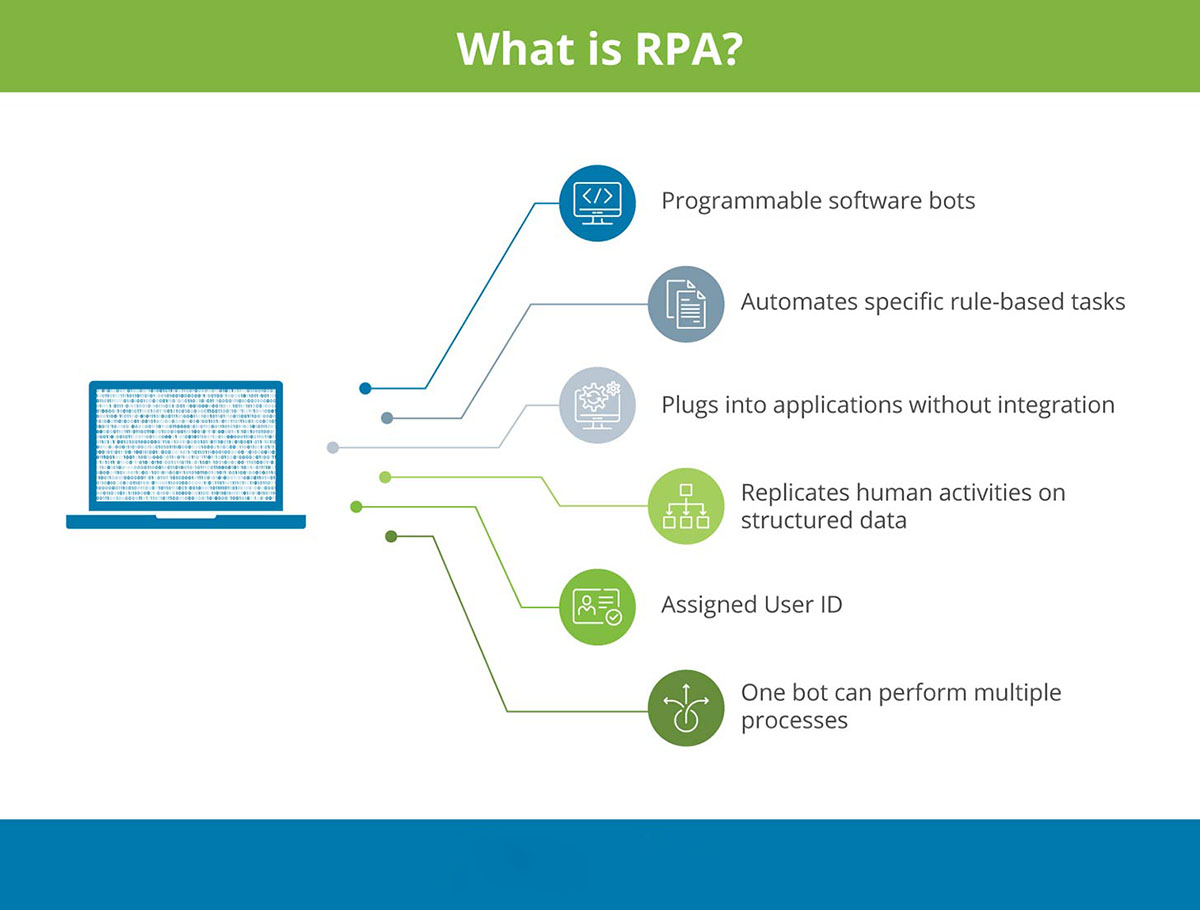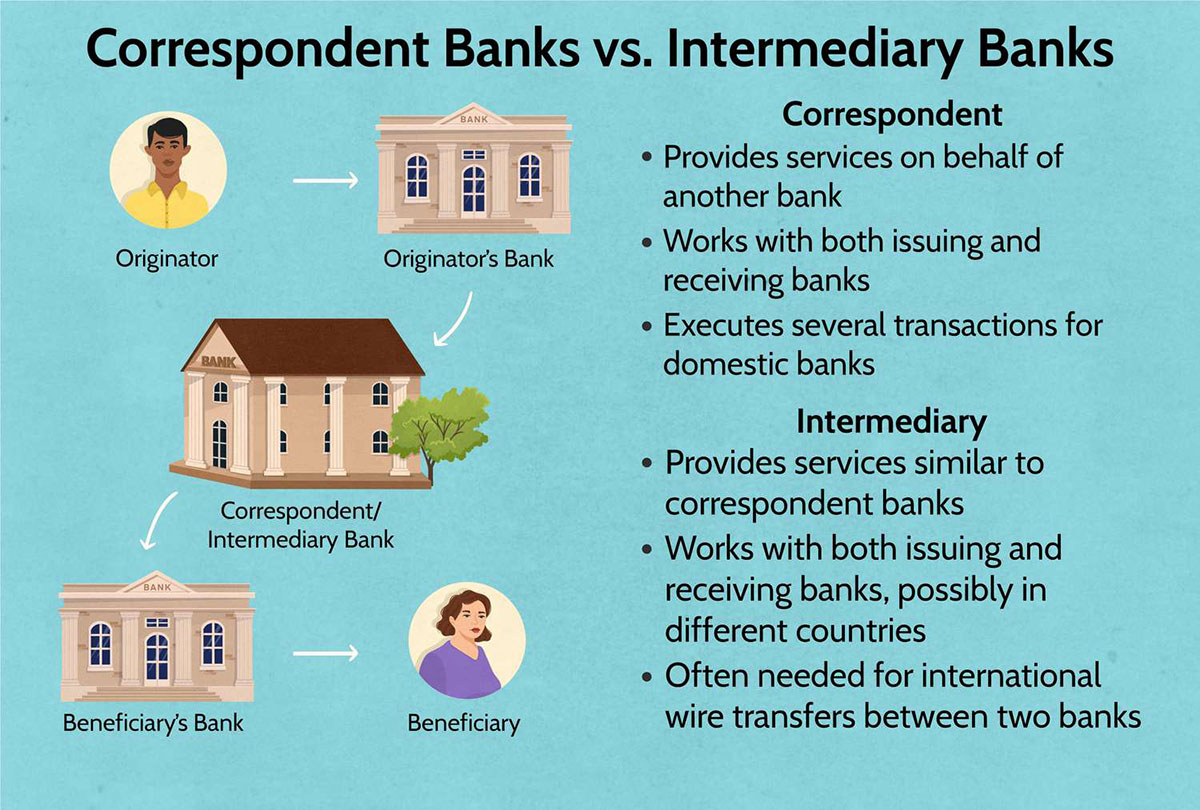

Finance
What Is MSR In Banking
Published: October 13, 2023
Discover the importance of MSR in banking and its impact on the finance sector. Explore the role of MSR in managing risk and maximizing profitability.
(Many of the links in this article redirect to a specific reviewed product. Your purchase of these products through affiliate links helps to generate commission for LiveWell, at no extra cost. Learn more)
Table of Contents
Introduction
When it comes to the world of finance, there are many terms and acronyms that can seem perplexing to the uninitiated. One such term is MSR, which stands for Mortgage Servicing Rights. In the context of banking, MSR refers to the contractual agreement between a mortgage originator and a third-party servicer to handle the administrative tasks associated with mortgage servicing on behalf of the originator.
The nature of mortgage loans makes them a complex and long-term financial commitment for borrowers, involving repayment of large sums of money over an extended period. The process of managing these loans, collecting payments, and handling associated paperwork requires specific expertise and resources. This is where Mortgage Servicing Rights come into play.
MSR is considered a valuable asset for mortgage originators and lenders. By transferring the servicing rights to a specialized third-party servicer, they can focus on their core business activities, such as originating new loans, while ensuring that the mortgage servicing process is efficiently handled by experts in the field.
Over the years, the importance of MSR in banking has grown significantly. It has become a critical component of financial institutions’ business strategies, helping them optimize their operations and enhance their profitability. In this article, we will delve deeper into the definition, importance, implementation, benefits, and limitations of MSR in the banking industry.
Definition of MSR
Mortgage Servicing Rights (MSR) are contractual rights that grant a mortgage originator or lender the authority to transfer the responsibility of mortgage loan administration and servicing to a third-party servicer. These rights encompass a wide range of tasks and responsibilities, including collecting payments, managing escrow accounts, maintaining borrower records, handling delinquencies and defaults, and ensuring compliance with regulatory requirements.
When a borrower obtains a mortgage loan, the lender typically retains the right to service the loan or chooses to sell this right in the secondary market. This is where MSR comes into play. By selling the servicing rights, the lender transfers the administrative duties and responsibilities associated with mortgage servicing to a specialized company or servicer.
The transfer of MSR is governed by a legally binding agreement, commonly known as the Mortgage Servicing Rights Agreement. This agreement outlines the specific terms and conditions under which the servicing rights are transferred, including the compensation structure, the duration of the contract, and the obligations and responsibilities of the servicer.
It is important to note that MSR does not involve the transfer of ownership of the mortgage loan. The lender retains the ownership of the loan, including the right to collect the principal and interest. The servicer, on the other hand, is responsible for the day-to-day administration and management of the loan, ensuring that payments are collected, borrower inquiries are addressed, and other servicing activities are carried out in compliance with industry regulations and standards.
The value of MSR is derived from the fees that the servicer receives for performing these administrative tasks. These fees are typically a percentage of the outstanding loan balance or a fixed dollar amount per loan. The precise compensation structure may vary depending on the terms of the Mortgage Servicing Rights Agreement.
In summary, Mortgage Servicing Rights (MSR) are the contractual rights that allow a mortgage originator to transfer the servicing responsibilities of a mortgage loan to a third-party servicer, while retaining ownership of the loan. These rights define the scope of tasks and compensation associated with mortgage loan administration and servicing.
Importance of MSR in banking
Mortgage Servicing Rights (MSR) play a crucial role in the banking industry, serving as a valuable asset for financial institutions. Here are some reasons why MSR is important in banking:
- Enhanced Operational Efficiency: By transferring the servicing of mortgage loans to specialized third-party servicers, banks can focus on their core competencies, such as originating new loans and managing risk. This allows them to streamline their operations and allocate resources more effectively. The expertise and economies of scale offered by servicers help improve the efficiency and quality of mortgage loan servicing.
- Reduced Compliance Risk: Compliance with regulatory requirements is a critical aspect of mortgage loan servicing. However, the regulatory landscape is complex and constantly evolving. Outsourcing servicing responsibilities to specialized servicers can help banks navigate this challenging environment and reduce the risk of non-compliance. Servicers have the expertise and systems in place to ensure that all servicing activities adhere to the latest regulatory guidelines.
- Access to Advanced Technology and Infrastructure: Mortgage loan servicing involves complex processes, including payment collection, document management, and borrower communication. Specialized servicers invest in advanced technology and infrastructure to handle these tasks efficiently. By leveraging the capabilities of servicers, banks can benefit from cutting-edge systems and tools without having to make significant investments themselves.
- Improved Customer Service: Mortgage loan borrowers expect prompt and accurate handling of their payments, inquiries, and requests. Third-party servicers have dedicated teams that specialize in customer service, ensuring that borrowers receive timely and accurate responses to their queries. This enhances the overall customer experience and helps build positive relationships between borrowers and banks.
- Increased Profitability: MSR can have a significant impact on a bank’s profitability. Servicers are compensated for their services through fees paid by the bank. By optimizing the administration and servicing of mortgage loans, banks can reduce costs, increase revenue, and improve their bottom line. Additionally, the ability to sell MSR in the secondary market can generate additional income for banks.
In summary, Mortgage Servicing Rights (MSR) are vital for banks as they enable enhanced operational efficiency, reduce compliance risk, provide access to advanced technology and infrastructure, improve customer service, and contribute to increased profitability. By leveraging the expertise of specialized servicers, banks can focus on their core competencies and deliver a higher level of service to their mortgage loan borrowers.
Implementation of MSR in banking
The implementation of Mortgage Servicing Rights (MSR) in banking involves several key steps and considerations. Here is an overview of the typical implementation process:
- Evaluation and Selection of Third-Party Servicers: Banks need to carefully evaluate and select third-party servicers to whom they will transfer the servicing rights. This involves conducting due diligence on potential servicers, considering factors such as their track record, reputation, expertise, technology capabilities, and compliance practices. The selection process should align with the bank’s strategic objectives and risk appetite.
- Negotiating the Mortgage Servicing Rights Agreement: Once a servicer has been chosen, the bank and servicer enter into a Mortgage Servicing Rights Agreement. This agreement outlines the terms and conditions of the transfer of servicing rights, including compensation, duration of the agreement, performance metrics, and responsibilities of each party. The agreement should be reviewed by legal and compliance teams to ensure it aligns with regulatory requirements and protects the interests of the bank.
- Data Transition and Systems Integration: The bank and servicer need to establish a seamless process for the transition of borrower data and servicing records. This involves ensuring the secure transfer of relevant data, such as loan information, borrower contact details, payment history, and escrow records. Additionally, systems integration between the bank and servicer’s platforms may be necessary to enable efficient communication and data exchange.
- Training and Knowledge Transfer: The bank should provide appropriate training to the servicer’s staff to ensure they understand the bank’s policies, procedures, and compliance requirements. This helps maintain consistency in servicing standards and ensures that borrowers receive the same level of service they expect from the bank. Knowledge transfer should be an ongoing process, with regular communication and collaboration between the bank and servicer.
- Monitoring and Performance Management: The bank should establish a robust monitoring process to track the performance of the servicer. This involves regularly reviewing key performance indicators (KPIs) such as delinquency rates, customer satisfaction scores, and compliance metrics. It is crucial to maintain an open line of communication with the servicer, address any issues promptly, and periodically assess their performance against agreed-upon benchmarks.
The successful implementation of MSR requires effective collaboration and communication between the bank and servicer, as well as thorough planning and ongoing oversight. By ensuring a smooth transition of servicing responsibilities and maintaining strong relationships with servicers, banks can leverage MSR to optimize their operations and enhance customer service.
Benefits and Limitations of MSR in Banking
Mortgage Servicing Rights (MSR) offer several benefits to banks, but they also come with certain limitations. Here are the key benefits and limitations of MSR in the banking industry:
Benefits:
- Enhanced Focus on Core Business: By transferring the servicing responsibilities to specialized third-party servicers, banks can concentrate on their core competencies, such as loan origination and risk management. This allows them to allocate resources more effectively, optimize operations, and improve overall efficiency.
- Access to Expertise and Technology: Third-party servicers have extensive experience and expertise in mortgage loan servicing. They invest in advanced technology and infrastructure to efficiently handle tasks such as payment collection, escrow management, and borrower communication. Banks can leverage this expertise and technology without the need for significant internal investment.
- Improved Compliance and Risk Management: Compliance with regulatory requirements is critical in mortgage loan servicing. Specialized servicers have in-depth knowledge of industry regulations and can ensure that all activities are conducted in compliance with applicable laws. This helps reduce compliance risks, mitigates regulatory penalties, and enhances the bank’s reputation.
- Better Customer Service: Third-party servicers often have dedicated customer service teams that specialize in mortgage loan servicing. They can provide prompt and accurate responses to borrower inquiries, reducing the burden on bank staff and enhancing the overall customer experience. Improved customer service contributes to customer satisfaction and loyalty.
- Potential for Additional Income: Banks have the option to sell MSR in the secondary market, which can generate additional income. The value of MSR can fluctuate based on market conditions and interest rates, presenting opportunities for banks to realize gains. This additional income can positively impact a bank’s financial performance.
Limitations:
- Loss of Direct Control: When banks transfer servicing rights to third-party servicers, they give up direct control over the day-to-day management of mortgage loans. This may result in a loss of oversight and potentially impact the quality of servicing. Banks should closely monitor the performance of servicers to ensure adherence to agreed-upon standards.
- Reputation and Customer Relationship Risk: Banks need to carefully select servicers and ensure their practices align with the bank’s values and customer service standards. If a servicer’s actions are not in line with customer expectations or regulatory requirements, it can negatively impact the bank’s reputation and customer relationships. Vigilance is essential when partnering with third-party servicers.
- Cost Consideration: While outsourcing mortgage loan servicing can improve operational efficiency, there are costs associated with retaining third-party servicers. Banks should carefully evaluate the fee structure and ensure that the benefits gained outweigh the costs. Cost analysis should take into account potential cost savings from increased efficiency and risk reduction.
Overall, Mortgage Servicing Rights (MSR) provide banks with several benefits, including enhanced focus on core business, access to expertise and technology, improved compliance and risk management, better customer service, and potential additional income. However, banks should also be mindful of the limitations, such as the potential loss of control, reputation and customer relationship risk, and cost considerations.
Examples of MSR in the Banking Industry
Mortgage Servicing Rights (MSR) are widely used in the banking industry, with many financial institutions leveraging this strategy to optimize their operations and improve profitability. Here are a few examples of MSR implementation in the banking industry:
- Large National Banks: Major national banks often engage in large-scale mortgage lending activities. To streamline their operations and focus on origination, these banks frequently sell the servicing rights to specialized servicers. This allows them to offload the administrative responsibilities associated with mortgage loan servicing while maintaining ownership of the loans. By partnering with servicers, these banks can enhance efficiency and customer service, reduce compliance risk, and potentially generate additional income by selling MSR in the secondary market.
- Regional Banks and Credit Unions: Regional banks and credit unions also utilize MSR as a strategic approach. These institutions may not have the scale or resources to handle all aspects of mortgage loan servicing in-house. By transferring servicing rights to third-party servicers, they can access the expertise and advanced technology required for efficient servicing. This allows them to focus on their core competencies and provide a high level of personalized service to their customers. Additionally, partnering with servicers helps these institutions manage compliance requirements and maintain strong customer relationships.
- Non-Bank Mortgage Lenders: Non-bank mortgage lenders, such as online mortgage providers and fintech companies, often rely on MSR to enhance their competitiveness in the market. These lenders specialize in originating mortgage loans but may lack the infrastructure and resources needed for loan servicing. By partnering with servicers, they can offer a seamless end-to-end mortgage experience to borrowers while ensuring compliance and efficient servicing. This strategic use of MSR enables non-bank lenders to focus on their core business and expand their loan origination capabilities.
- Mortgage REITs: Mortgage Real Estate Investment Trusts (REITs) are companies that invest in mortgage-related assets, including MSR. Mortgage REITs generate income by acquiring the rights to service mortgage loans. They often enter into partnerships with servicers to handle the day-to-day servicing activities, while the REIT benefits from the steady stream of fees generated by mortgage loan servicing. This allows mortgage REITs to capitalize on the income potential of MSR without the need for direct involvement in loan origination or property ownership.
These are just a few examples of how Mortgage Servicing Rights (MSR) are implemented in the banking industry. The utilization of MSR varies based on the size, focus, and strategic objectives of financial institutions. Whether it is large national banks, regional banks, credit unions, non-bank lenders, or mortgage REITs, the implementation of MSR offers these institutions the opportunity to optimize their operations, enhance customer service, reduce risk, and potentially generate additional income.
Challenges in Implementing MSR in Banking
The implementation of Mortgage Servicing Rights (MSR) in banking comes with its fair share of challenges. Banks need to be aware of these challenges and address them effectively to ensure a smooth and successful implementation. Here are some common challenges in implementing MSR in the banking industry:
- Data Security and Privacy: The transfer of borrower data between banks and third-party servicers raises concerns about data security and privacy. Banks must adhere to strict regulations and ensure that appropriate safeguards are in place to protect sensitive borrower information during the transition. This includes employing robust data encryption, secure file transfer methods, and privacy controls to mitigate the risk of data breaches.
- Contractual Arrangements: Negotiating and finalizing the Mortgage Servicing Rights Agreement can be a complex process. Banks need to clearly define the responsibilities and obligations of both parties, including the compensation structure, duration of the agreement, quality standards, and compliance requirements. Legal and compliance teams should carefully review the agreement to ensure it aligns with regulatory guidelines and protects the bank’s interests.
- System Integration and Data Transfer: The seamless transfer of borrower data from the bank’s systems to the servicer’s platforms requires careful planning and coordination. Banks and servicers need to ensure compatibility between their respective systems, establish secure data transmission channels, and execute effective data mapping strategies. Any interruption or data loss during the transfer process can have significant operational and reputational consequences.
- Risk Management and Oversight: Banks must maintain adequate oversight and risk management practices when engaging third-party servicers. This involves establishing comprehensive risk management frameworks, developing performance metrics and monitoring mechanisms, conducting regular audits, and implementing strong governance practices. Proper oversight helps mitigate potential risks, such as non-compliance, inadequate service quality, or reputational damage.
- Customer Transition and Communication: During the implementation of MSR, banks need to effectively communicate the transfer of servicing rights to borrowers. It is crucial to provide clear and timely communication, ensuring borrowers understand the change in servicing arrangements and know how to address any concerns or inquiries. Transparency and proactive customer communication are key to maintaining positive customer relationships during the transition.
Addressing these challenges requires careful planning, effective collaboration between the bank and third-party servicers, and adherence to regulatory requirements. By proactively managing these challenges, banks can successfully implement MSR and achieve the intended benefits of enhanced operational efficiency, improved customer service, and reduced compliance risk.
Conclusion
Mortgage Servicing Rights (MSR) play a vital role in the banking industry, enabling financial institutions to optimize their operations, improve customer service, and enhance profitability. The implementation of MSR involves transferring the servicing responsibilities of mortgage loans to specialized third-party servicers while maintaining ownership of the loans. By leveraging the expertise and technology capabilities of servicers, banks can focus on their core competencies, reduce compliance risk, and enhance efficiency.
The benefits of MSR are numerous, including enhanced operational efficiency, access to expertise and advanced technology, improved compliance and risk management, better customer service, and the potential for additional income. However, there are also limitations and challenges to consider, such as the loss of direct control, reputation and customer relationship risk, and the need for careful contractual arrangements and oversight.
To successfully implement MSR, banks must carefully evaluate and select third-party servicers, negotiate comprehensive Mortgage Servicing Rights Agreements, ensure smooth data transition and system integration, and closely monitor the performance of servicers. Addressing challenges related to data security, contract management, risk oversight, and customer communication is essential for a successful implementation.
In conclusion, Mortgage Servicing Rights (MSR) provide banks with the opportunity to optimize their mortgage loan servicing operations and improve overall performance. By partnering with specialized servicers, banks can focus on core business activities, mitigate compliance risk, enhance customer service, and potentially generate additional income. While there are challenges to navigate, proper planning, effective communication, and robust oversight can help banks reap the rewards of MSR implementation in the banking industry.














